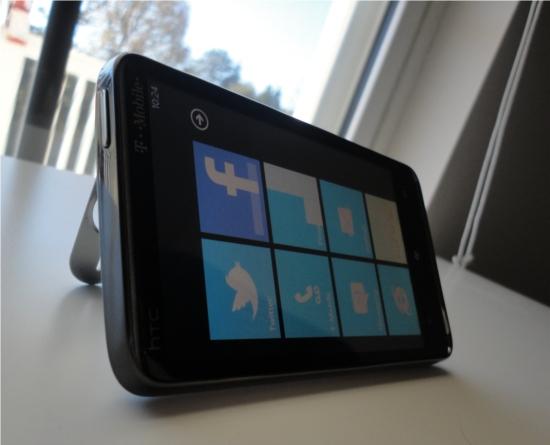It has been just over six months since Microsoft's latest mobile endeavor became available to the public here in the States. Some predicted that it would pose a threat to Apple's popular iPhone and Google's open source platform. However, such has not been the case.
Some interest was shown by consumers right around the initial release and there does seem to be respectable amount of development support – enough to surpass that of webOS in a very short time frame. But for the most part, the platform itself, device launches, and news of Windows Phone 7 has already started to become stagnant.
In its own defense, Windows Phone 7 offers a consistent experience and already comes in several shapes and sizes, with a decent choice in price range. Unfortunately, that isn't enough to propel you to the top in today's market.
The less than stellar adoption of Windows Phone 7 could be attributed to several different things. Like, for instance, the time that it was released. At the time, Android was (and still is, for that matter) on a rampage, devouring everything in its path. Being late to the game is never a good thing, especially when “the game” is entering the vicious mobile market that we've all come to know. It is also worth noting that some – myself included – have claimed Windows Phone 7 so simple that it is just too boring.
One serious claim by Microsoft that would give their platform an edge over Google's operating system was smooth updates that left no devices behind. They were obviously targeting one of Android's major flaws, fragmentation and painful updates. Thankfully, they've kept their promise, for the most part, as most Windows Phone 7 devices have recently received the long awaited NoDo update.
The update brought copy and paste (a feature that never should have been left out to begin with), faster application load times, and several other fixes. Even though it was timely and highly anticipated, this update was rather lightweight and came lacking the features that could pull WP7 out of infancy and out of the obvious rut it has been residing in since its inception.
Fortunately, not all is dark and gloomy in the Windows Phone camp. The long-rumored Mango update, which is expected to hit before the end of the year, has primarily been a mystery until last night. All we knew was that the update was “major” – big enough to move Windows Phone to version 7.5.
According to the Windows Phone Dev Podcast, users can expect Bing Audio (music ID service), Bing Vision (barcode scanning), turn-by-turn navigation (a huge plus), podcast support, and SMS dictation in the update. Features like these alone though, aren't usually enough to constitute calling an update “major.” It has also been rumored that the update will bring some rather large UI changes as well.
I've spent quite a bit of time messing and tinkering with WP7, and have yet to be truly impressed. But seeing that the application support is already there and rapidly growing and major complaints lie within the lack of features and bland UI, Windows Phone 7 could finally be ready to truly mature and flourish.
Who knows, with Nokia now on the Microsoft camp and the Mango update just a few months ahead, it could be Windows Phone who eventually takes the little green robot down. What say you? Would the Mango update (what we expect it to bring) be enough to make you want Windows Phone 7 over Android? Or does it still sound too bland?
- Log in to post comments
